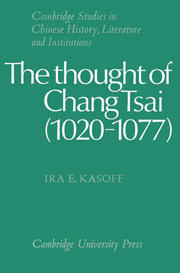Summary
After several centuries of political fragmentation and turmoil, the political and administrative stability established by the founding Sung (960–1279) emperors led to developments in many fields. For example, agriculture flourished as new land was brought under cultivation and new techniques, including a strain of early ripening rice allowing for double and triple cropping, were introduced and disseminated. Advances were made in industry as well. Regional specialization and inter-regional trade increased as the economy became more commercialized. The volume of money in circulation increased, and in the late eleventh century may have reached twenty times the maximum amount in circulation during the T'ang; the government also introduced paper notes during the first half of the eleventh century.
There were major developments in the cultural sphere as well. In literature, the eleventh century witnessed the rise of the ‘old text’ (ku wen) movement, a rejection of ornate writing in favor of a simple, direct expression of moral principles and emotions. Although the prose of this period is better known, Sung writers also produced a great corpus of poetry, and they developed a new genre, the tz'u, a kind of lyric song. One scholar has written, ‘Poetry that was so full of description and philosophizing, so taken up with themes of everyday life, so socially conscious as that of the Sung, had never been known before in China.’ A series of great artists raised landscape painting to new heights of grandeur and philosophic expression. Porcelain making, which began in the T'ang dynasty, became much more refined in the Sung dynasty as new innovations made possible almost all forms, textures and colors.
- Type
- Chapter
- Information
- The Thought of Chang Tsai (1020–1077) , pp. 1 - 6Publisher: Cambridge University PressPrint publication year: 1984



